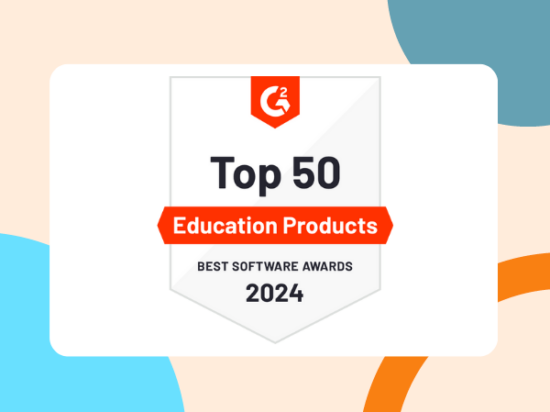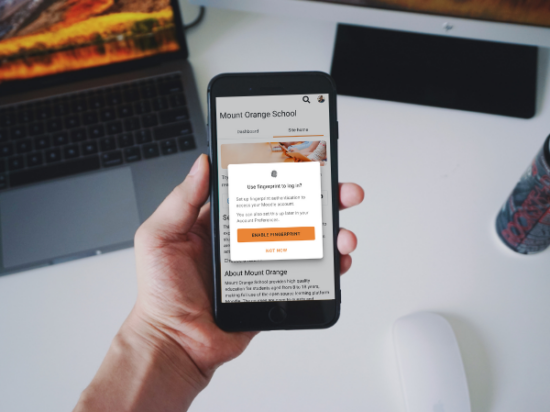As we witness the evolution of technology and its seamless integration into every facet of our lives, educators are adapting to new methods to deliver the most effective educational experiences. The pursuit of impactful learning programs demands the constant flexibility of refining teaching methodologies to cater to the diverse needs of learners.
This is where the reporting capabilities within the Learning Management Systems (LMS) become a game-changer for educators. Reporting empowers teachers and educational institutions to gather crucial data and feedback. Moreover, educators can gain valuable insights, identify opportunities for enhancement , and make informed decisions to enrich the overall learning experiences for their students.
In this article, we’ll explore the benefits of reporting for your learning programs, how to maximise them, key considerations, and functionalities to use reporting in Moodle LMS.
Benefits of using reporting in learning programs
Reporting tools are essential resources that help educators collect relevant data aligned with specific learning goals. The true value of reporting lies in analysing and interpreting this data to identify trends, address knowledge gaps, and make informed decisions to cater to individual learners’ needs.
Let’s look at some of the benefits of reporting in an LMS:
- Evidence-based insights: Data-driven information is the key component of effective teaching. Through analytics, educators can manage enrolments, develop personalised learning paths, and optimise the learning experience for students.
- Identifying strengths and areas for improvement: Reporting acts as a ‘magnifying glass’, highlighting the strengths and weaknesses of learning programs. Educators can identify what’s working exceptionally well, while also pinpointing areas that may require refinement. They can fine-tune their teaching approaches, providing a more impactful learning experience for learners.
- Monitoring student progress: Comprehensive reports detailing a learner’s performance offer insights into their understanding of a subject, enabling educators to effectively measure and manage their progress. Timely access to this information enables them to recognise any signs of challenge or achievement, allowing for swift intervention and tailored support. This personalised attention guarantees that no learner is left behind, fostering a culture of inclusivity that eventually leads to academic success.
- Personalised learning approaches: No two learners are the same, and a diverse learning program ensures accessibility for all learners. Through reporting, educators can create competency frameworks and assign learning plans to individuals or groups of learners.
Maximising your reporting capabilities
To truly harness the power of reporting in educational settings, educators need to embrace a proactive approach that centres around optimising their learning strategies. Reporting isn’t just about collecting data; it is about using that data to inform and enrich the teaching experience. Here is how educators can make the most of reporting in their classrooms:
- Get familiar with reporting features: As educators delve into the world of reporting, they will discover myriad tools and plugins available within their LMS solutions. These reporting features offer valuable insights into student performance, engagement, and progress. Taking the time to explore and understand these features is essential in making informed decisions to enhance learning programs.
- Enhance professional development: To leverage reporting effectively, educators must equip themselves with the skills to interpret and utilise the data they collect. Engaging in professional development opportunities that focus on data analysis and evidence-based decision-making can significantly improve an educator’s ability to maximise the potential of reporting in their teaching.
- Share knowledge and collaborate: Learning from the experiences of others is a powerful way to grow. Engaging in discussions and sharing best practises with fellow teachers can provide fresh perspectives on using reporting to refine teaching methodologies. Collaborative efforts foster a supportive learning community where educators can draw inspiration and innovative ideas to better serve their students.
- Reflect on the outcomes: Embracing a culture of continuous improvement is crucial for educators seeking to maximise the impact of reporting. Regularly evaluating the outcomes of reporting insights allows teachers to identify areas to refine their teaching strategies.
Optimising your reports with Moodle LMS
Moodle LMS empowers educators with a set of features designed to optimise reporting, grading, and data analysis. With detailed built-in reports, customisable grading methods, and a wide range of third-party plugins, educators can gain deeper insights into student engagement and performance. Read about them below:
- Moodle’s built-in reports: One of the standout features of Moodle LMS is its array of built-in reports that provide valuable insights into learner progress. Among these, the Course completion report allows educators to track students’ overall course completion status, helping to identify learners who may require additional support. The Activity completion report, on the other hand, offers a granular view of individual activity completion, providing educators with a comprehensive understanding of each student’s engagement and progress within the course.
- Third-party reporting plugins: To cater to diverse reporting needs, Moodle supports a rich ecosystem of third-party reporting plugins, such as Module completion tracker, Grade distribution, and Rubrics report. These plugins offer specialised reporting features, such as attendance tracking or integration with learning analytics tools. By leveraging these additional reporting capabilities, educators can gather data beyond the standard Moodle reports, allowing for a more comprehensive assessment of student engagement and performance.
Conclusion
Reporting is an indispensable tool for enhancing learning programs and fostering student growth. By leveraging it the right way, educators can gain valuable insights into the program effectiveness, identify areas for improvement, and make data-driven decisions that improve the overall learning experience. Additionally, we have a free course on Moodle Reports where you can explore Moodle’s site-wide and course reports and learn how to analyse and configure them to better monitor your site.


